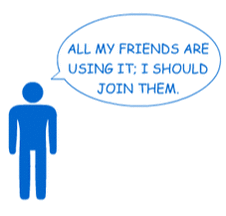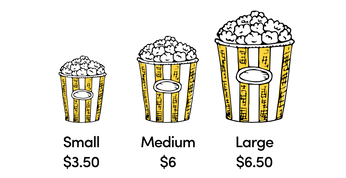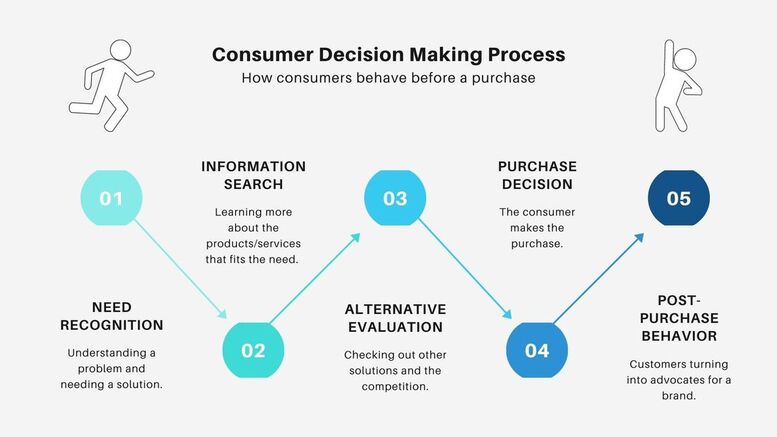Theory Driven Marketing
In traditional marketing or the digital world, the first rule is to know your customer. To build connections with consumers, it is necessary to understand behaviors and the underlying motivation behind the actions of consumers. We can learn about these behaviors through understanding psychology and theories. An individual’s preference and ultimate purchasing decisions are influenced by a multitude of factors, including culture, socio-economic status, peers, geographical location, and demographic factors. By taking these factors into consideration, marketers can create strategies and messaging that can favorably impact the target consumers’ behavior.
Before you dive into the digital universe of marketing, understanding these psychological theories will help you create the right strategy for your brand.
In traditional marketing or the digital world, the first rule is to know your customer. To build connections with consumers, it is necessary to understand behaviors and the underlying motivation behind the actions of consumers. We can learn about these behaviors through understanding psychology and theories. An individual’s preference and ultimate purchasing decisions are influenced by a multitude of factors, including culture, socio-economic status, peers, geographical location, and demographic factors. By taking these factors into consideration, marketers can create strategies and messaging that can favorably impact the target consumers’ behavior.
Before you dive into the digital universe of marketing, understanding these psychological theories will help you create the right strategy for your brand.

Social Proof
Think of it as building the foundation for massively scalable word-of-mouth” blogger Aileen Lee
This is also known as the “me to affect.” Recognizing a behavior that makes us want to adopt to a group of people we trust. Social proof includes testimonials, social following, mentions, collaborate with another expert, Influencer marketing, share milestones, use shout-outs in your content, user generated content
Sharing social proof through social networks can multiply the discovery of your brand and add to its influence.
According to Robert Cialdini, who studied the principle of social proof in-depth in his book, Influence: The Psychology of Persuasion, “we view a behavior as more correct in a given situation to the degree that we see others performing it”.
six types of social proof¹.
Think of it as building the foundation for massively scalable word-of-mouth” blogger Aileen Lee
This is also known as the “me to affect.” Recognizing a behavior that makes us want to adopt to a group of people we trust. Social proof includes testimonials, social following, mentions, collaborate with another expert, Influencer marketing, share milestones, use shout-outs in your content, user generated content
Sharing social proof through social networks can multiply the discovery of your brand and add to its influence.
According to Robert Cialdini, who studied the principle of social proof in-depth in his book, Influence: The Psychology of Persuasion, “we view a behavior as more correct in a given situation to the degree that we see others performing it”.
six types of social proof¹.
- Expert: Expert social proof is when an expert in your industry recommends your products or services or is associated with your brand. Examples: a Twitter shoutout by an expert or having an expert on your Twitter chat.
- Celebrity: Celebrity social proof is when a celebrity endorses your products. Examples: an Instagram post or tweet about your product by a celebrity or influencer.
- User: User social proof is when your current users recommend your products and services based on their experiences with your brand. Examples: praises on social media or positive ratings on review sites.
- The wisdom of the crowd: This type of social proof is when a large group of people is seen to be endorsing your brand. Examples: having thousands of customers or millions of followers on your social media profiles.
- The wisdom of your friends: This type of social proof is when people see their friends approve your product. Examples: seeing their friends use your product or follow you on social media.
- Certification: This type of social proof is when you are given a stamp of approval by an authoritative figure in your industry. Examples: the blue checkmark on Twitter or Facebook

The Decoy Effect
The decoy effect is a psychological occurrence that means consumers are more likely to change their preference between two options when a third less appealing option is introduced. The decoy effect works best when taking advantage of comparison shopping. Have you ever sat in a movie theater wondering how you ended up with a large popcorn? The smallest was $3.50, medium was $6.00, large $ $6.50 only 50 cents more. It made financial sense, that’s why. Using a decoy product creates the feeling of increased value. Imagine if you only choices were the small and large. Would you have been as likely to end up with the large popcorn?
Paradox of Choice
It’s also important to consider that too many choices is not a good thing either. Adding one decoy could be a good strategy, but too many choices created anxiety. Instead, providing consumers with a limited range of choices has psychological benefits and reduces anxiety for shoppers.
The Psychology of Color
https://coschedule.com/blog/color-psychology-marketing/
The decoy effect is a psychological occurrence that means consumers are more likely to change their preference between two options when a third less appealing option is introduced. The decoy effect works best when taking advantage of comparison shopping. Have you ever sat in a movie theater wondering how you ended up with a large popcorn? The smallest was $3.50, medium was $6.00, large $ $6.50 only 50 cents more. It made financial sense, that’s why. Using a decoy product creates the feeling of increased value. Imagine if you only choices were the small and large. Would you have been as likely to end up with the large popcorn?
Paradox of Choice
It’s also important to consider that too many choices is not a good thing either. Adding one decoy could be a good strategy, but too many choices created anxiety. Instead, providing consumers with a limited range of choices has psychological benefits and reduces anxiety for shoppers.
The Psychology of Color
https://coschedule.com/blog/color-psychology-marketing/
